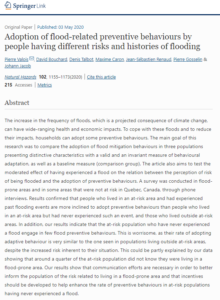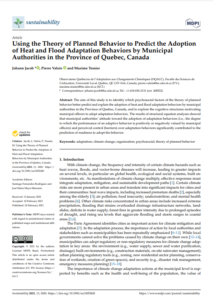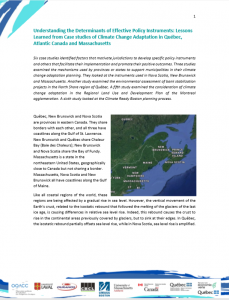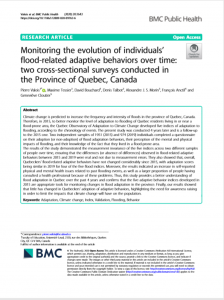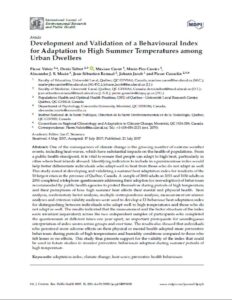The increase in the frequency of floods, which is a projected consequence of climate change, can have wide-ranging health and economic impacts. To cope with these floods and to reduce their impacts, households can adopt some preventive behaviours. The main goal of this research was to compare the adoption of flood mitigation behaviours in three populations presenting distinctive characteristics with a valid and an invariant measure of behavioural adaptation, as well as a baseline measure (comparison group).
-
Floods
